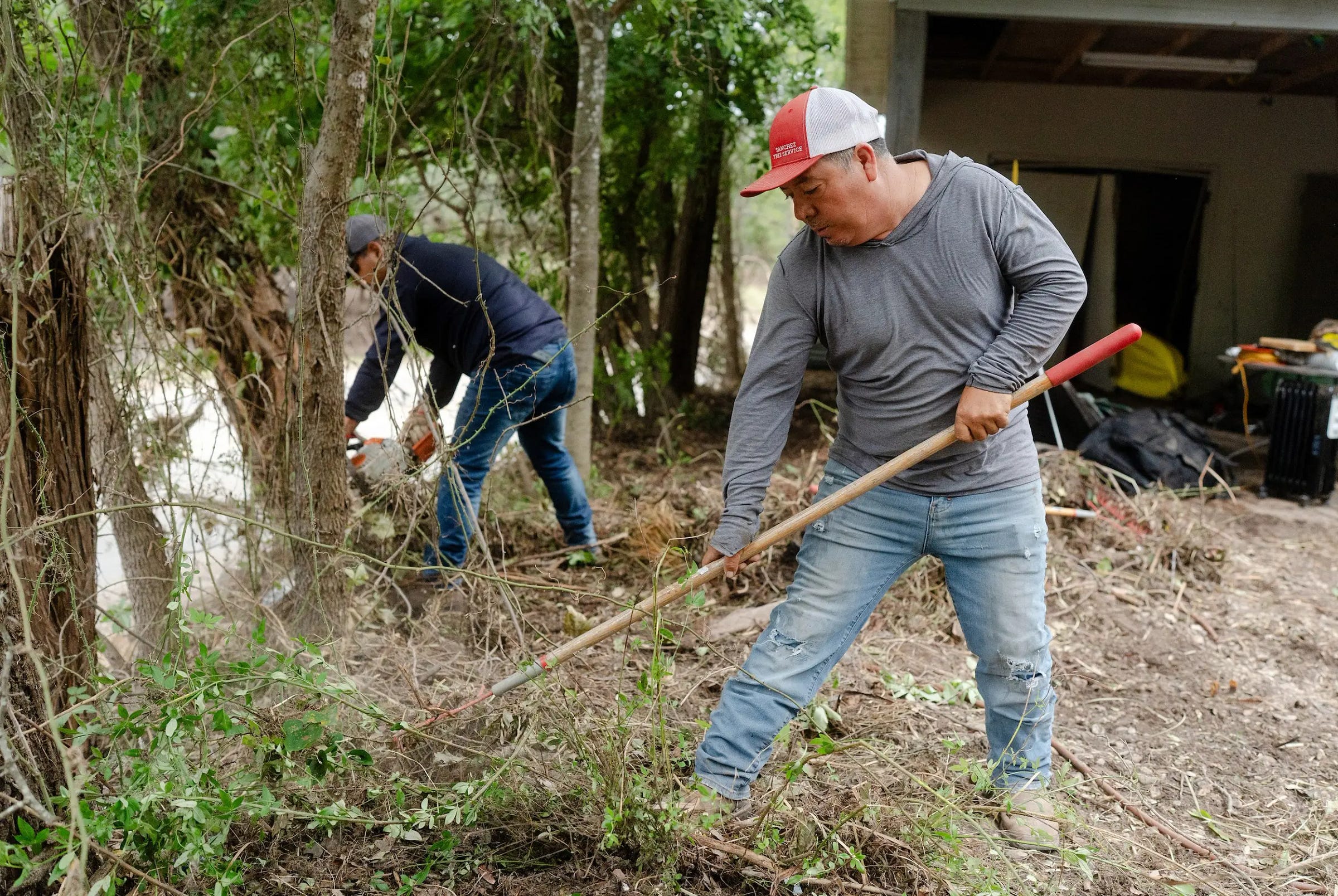“We Don’t Wait for Help—We Are the Help”: In Flood-Ravaged Texas Hill Country, Neighbors Become Lifelines
In the wake of a deadly flood, local residents—many of whom are immigrants—are stepping up to clear debris, comfort their neighbors, and rebuild their communities one act of kindness at a time.

HUNT, Texas — In the aftermath of the devastating July 4 floods that swallowed parts of Central Texas, leaving over 120 dead and thousands displaced, a quiet revolution is taking place—not led by governme…



